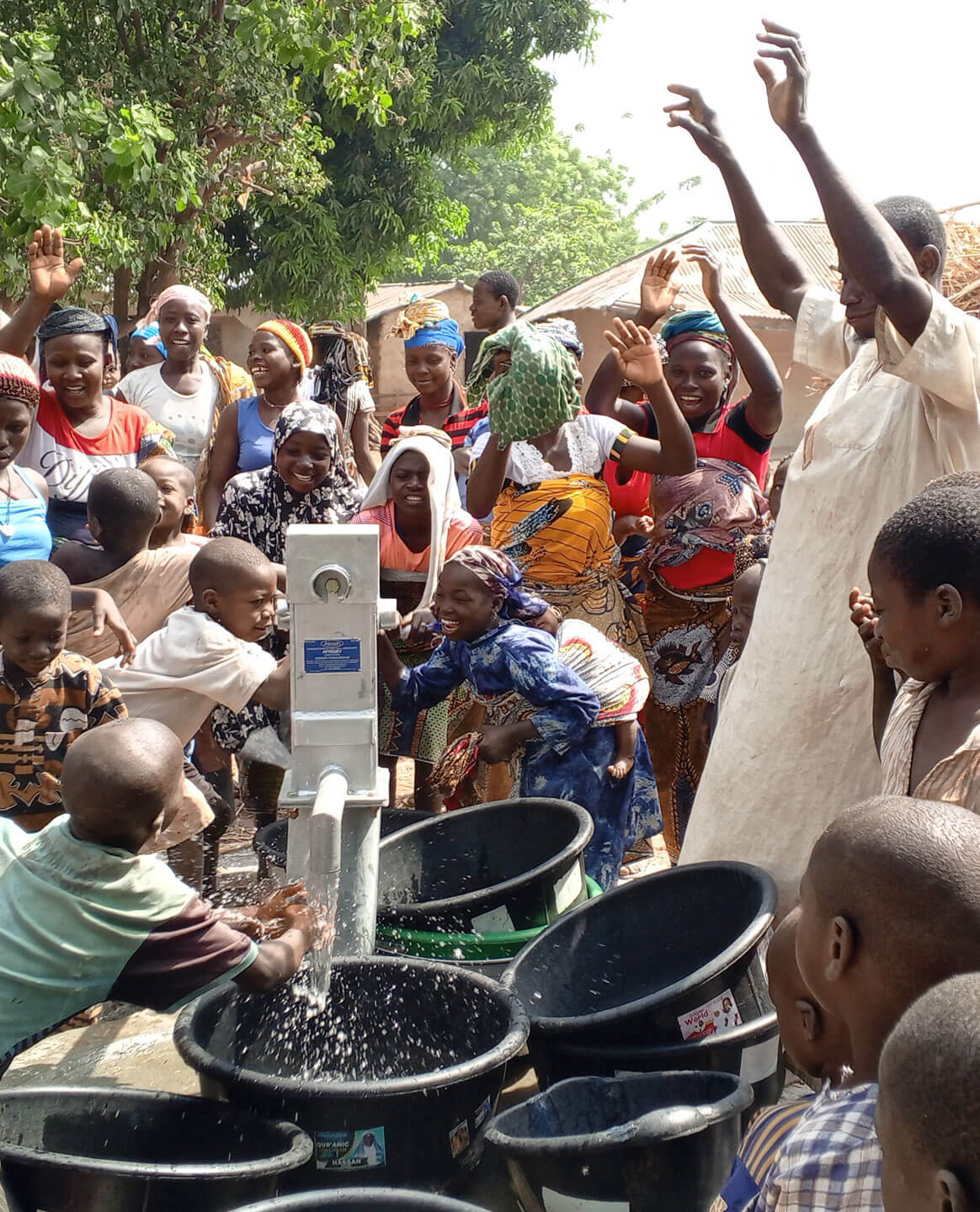Bringing lasting safe water solutions to Liberia, Nigeria, Kenya, and Haiti
Read our FALL NEWSLETTER where we share what has been happening over the last 6 months.
Check out our 2025 ANNUAL IMPACT REPORT and review the impact of our last Fiscal year.
First, we train and equip local teams in 6 areas of water, sanitation, and hygiene (WASH) programs like well drilling and pump repairs.
Second, these local teams complete projects and engage community members, creating ownership through involvement.
Third, support from donors make projects affordable.
Local, empowered leaders keep safe water flowing and break the cycle of poverty by building lasting strength from within.
It all started with a discouraging diagnosis and one trip to Liberia over 30 years ago…
Your support makes a difference.
